Default
Legislative Update Crossover
Crossover was Monday, March 6, with hundreds of bills waiting to get called in Rules so they could be eligible for a floor vote. Unfortunately, our bill did not get called but we are not done yet. We are currently looking for a crossed over germane bill that we can attach our prescription adaptation bill to keep it in play.
Last year, we were able to get $250,000 in the budget for an audit of the managed care companies. Recently, it was sent out for bid on the Georgia Procurement Registry. The companies are currently under evaluation and the contract should be awarded soon.
Here are some of the bills that we are following…
HB416 – Pharmacies; authorize qualified pharmacy technicians to administer certain vaccines
GPhA Past President, Sharon Sherrer, and GPhA Tech of the Year, Heather McCleod, came down to the Capitol and testified in front of the House Health Committee in favor of the tech vaccine bill. Their incredible testimonies garnered unanimous votes from the committee to advance the bill to the next stage. The bill made it through Rules and a House floor vote and is now on the Senate side.
HB343 – Lowering Prescription Drug Costs for Patients Act; enact
HB 343 will require PBMs to calculate defined cost sharing for insureds at the point of sale. This bill has crossed over and was in a “hearing only” in the Senate Health Committee this week.
GPhA is supporting this legislation as well. Chairman Cooper is carrying this bill which would require health insurance companies to cover comprehensive biomarker testing which can help pinpoint the type of cancer and exact treatment after being diagnosed. This type of blood and tissue testing can eliminate a lot of the “let’s try this treatment/medicine” which can waste precious time during a cancer diagnosis. This bill passed the Senate HHS Committee and is going to Senate Rules.
This bill will require the Department of Community Health to include continuous glucose monitors as a pharmacy benefit for Medicaid recipients. This bill has crossed over and is now on the Senate side.
This bill looks to reign in “white bagging” practices and is sponsored by Representative David Knight. Unfortunately, this bill was one of the many that did not get called in Rules on Crossover.
HB332 – Controlled substances; Schedules I. IV, and V; provide certain provisions
This is the yearly drug update bill sponsored by Chairman Parrish and Chairman Stephens. This bill is currently waiting on a vote on the Senate side.
HB181 – Controlled Substances; mitragynine and hydroxymitragynine are Schedule I; provide
Representative Rick Townsend and the American Kratom Association worked together to come up with compromises on this bill. There will be stricter labeling and products will have to be behind the counter. The age has increased to 21 to buy and possess Kratom. The concentration ratio of mitragynine and hydroxymitragynine have certain limits as well. This bill is now on the Senate side.
This bill will allow the spouses of firefighters, healthcare providers, and law enforcement officers who relocate to Georgia to get their professional license within 90 days of date of receipt of an application as long as previous license was in good standing and not the subject of an investigation. This bill has crossed over to the Senate side.
This bill would allow public and private schools in Georgia to stock and administer glucagon to people with diabetes. Nurses and physicians would be able to rapidly administer these crucial medications in an emergency. This legislation would also allow a public or private school to work directly with glucagon manufacturers or third-party suppliers to obtain the products for free or at fair market or reduced prices.
This Senate bill will cap the cost of insulin at $35 for State Employees. It has crossed over and on the House side now.
SB197 – “Health Care Practitioners Truth and Transparency Act”; enact
Senator Hufstetler introduced this legislation for health care providers to identify and not misrepresent their credentials to patients or in advertisements. In a health care setting where there are multiple types of providers, the health care practitioner shall wear an identifier during all patient encounters that includes the health care practitioner’s name and the type of license or educational degree in sufficient size and worn in a conspicuous manner as to be visible and apparent. Also, the health care practitioner will have to announce what their specialty is (ex. I’m Dr. Smith, Doctor of Pharmacy). Penalties are left up to the board under which the offender is licensed.
Chairman Ron Stephens sponsored introduced this bill to authorize physicians to delegate authority to APRNs and PAs to prescribe Schedule II narcotics. The prescription will be limited not to exceed a 5 day supply for individuals 18 and over except for ADHD patients as long as delegating physicians are pediatricians, family practice, internal medicine or psychiatrists.
This bill looks to expand production, increase transparency, and end lawsuits associated with the licenses. Pharmacies will be able to carry low THC but a subsequent retail license will be required.
– Melissa Reybold, VP of Public Policy
2023 Legislative Update Week 3 (Days 5-8)
There were no new developments in Week 3 with any of our agenda items. In fact, the overall feeling of a ‘calm before the storm’ looms under the Gold Dome right now. Legislative Counsel has drafted over 1,000 bills already but less than 20% have been introduced. Committees are still getting organized, and some are convening just to introduce committee members and adopt rules.
The House and Senate met for a joint session on Wednesday for Governor Kemp’s annual State of the State address. His session priorities include focusing on education, improving healthcare, tackling crime, and investing in Georgia’s workforce.
This week, GPhA will have continued conversations regarding our list of priorities. We have also been busy working with legislators and other stakeholders on relevant legislation that may have an impact on the pharmacy profession. We expect things to pick up significantly before next week’s Legislative Update.
– Melissa Reybold, VP of Public Policy
2023 Legislative Update Week 1 (Days 1-4)
Georgia’s 2023 Legislative Session gaveled in on Monday, January 9, with a light calendar for the day. Newly elected members of the assembly were sworn in with their families in attendance. A noticeable theme of bipartisanship was discussed in each chamber. This was evident with electing new chamber leaders without competing nominations. Also, for the first time ever that anyone can remember, the calendar for the entire session was set and agreed upon by the House and Senate on Day 1.
The first day left a feeling of refreshing change and optimism and after tying up some procedural work, the members of the General Assembly adjourned before noon. It seemed the lawmakers had somewhere to go after adjournment, so the Capitol cleared out pretty quickly. Maybe they had a secret meeting to attend that only allowed Black and Red apparel since that’s what most of them were wearing or maybe they were just trying to beat Atlanta traffic. Maybe history was repeating itself like last year and they were getting ready for the Georgia Bulldogs to play in the National Championship again!! We all know the answer and the outcome. Congratulations to the Bulldogs for their 2nd championship in a row!
Midweek, leaders gathered at the Georgia World Congress Center for the annual Georgia Chamber of Commerce Eggs and Issues breakfast to hear the 2023 session priorities of Governor Kemp, Lieutenant Governor Burt Jones, and Speaker of the House Jon Burns. Speaker Burns announced that healthcare was a top priority and plans to create a new health committee that will have policy and budgetary oversight on existing health committees. Representative Butch Parrish will chair the new committee. Representative Parrish is one of our pharmacist legislators in the General Assembly and we appreciate his continued support and congratulate him on his new committee assignment!
Both chambers continued organizational work and the House will have most of the committee assignments done next week during budget week.
It was all about Governor Kemp on Thursday with his inauguration at Georgia State University’s new Convocation Center. The Governor detailed his plans to cut taxes while returning some of the tax revenues to the citizens of Georgia. He is asking for $2000 raises for teachers and state employees and $150 million in grants for school districts. The Inaugural Gala followed later that night at State Farm Arena.
There are many changes this year in the assembly. New leadership in both chambers is in place. There are over 40 new legislators that are learning the ropes. Committees are changing and one that many of our bills passed through, the Special Committee on Access to Quality Health Care, is no more. We are waiting for final committee assignments to strategize on bill sponsors. This week is budget week so the General Assembly is not in session but meetings with legislators, lobbyists, and stakeholders will be on the schedule.
– Melissa Reybold, VP of Public Policy
DEA Drug Take-Back Day
 The DEA’s next National Prescription Drug Take-Back Day is April 30, 2022 – 10 a.m. to 2 p.m. across the state! Georgia citizens have two options on how to participate in the National Prescription Drug Take-Back Day. The two options are:
The DEA’s next National Prescription Drug Take-Back Day is April 30, 2022 – 10 a.m. to 2 p.m. across the state! Georgia citizens have two options on how to participate in the National Prescription Drug Take-Back Day. The two options are:
- Use a “Drive-Up Location” on April 30 between the hours of 10:00 a.m. to 2:00 p.m. To locate a participating DEA National Take-Back Initiative “Drive-Up Location” please click on this link – https://takebackday.dea.gov/. Note: These sites do not include the over 230 Drug Drop Boxes pointed out in #2.
- Your second option is to use one of the more than 230 Drug Drop Boxes across the state in your local law enforcement or pharmacy-maintained drug dropbox. PLEASE be aware that the DEA website DOES NOT list all the Drug Drop Boxes across the state therefore to locate the nearest Drug Drop Box location visit this website: http://prescriptiondrugdisposal.com.
Please feel free to share this YouTube video throughout your community to Educate Your Community about the need to dispose of prescription drugs properly; https://www.youtube.com/watch?v=UbjU4LVQzBI.
I have also included the DEA’s Get Smart About Drugs flyer below. Additionally, you will want to see the new Rx Drug Misuse, Abuse, Addiction, and Overdose Prevention Toolkit by clicking HERE or visit this link https://www.canva.com/design/DAEsoWlSwoA/lxH1iCay21fKNhIqoZfN9g/view?utm_content=DAEsoWlSwoA&utm_campaign=designshare&utm_medium=link&utm_source=sharebutton#1.
Thank You,
John Bringuel, MA, ICPS
Statewide Project Director
Georgia Prescription Drug Abuse Prevention Initiative
The Council on Alcohol and Drugs
2022 Legislative Update Days 28-31
Crossover was last Tuesday and luckily, our bill already made it out of the house so we didn’t have the stress of waiting and watching all day and night like some of the others. We are still waiting for a hearing to be scheduled in the Senate Insurance and Labor Committee. It’s getting down to the wire now with only eight legislative days left after today! Some of the bills we have been monitoring did not make it through crossover but that doesn’t necessarily mean that the bill is dead. Sometimes the language in a bill that did not crossover will get inserted into another bill.
HB 1351
Community Health, Department of; pharmacy benefits management for Medicaid program
HB 1351 passed in the House with unanimous votes. We are waiting for a committee hearing. Please continue to call your senator and ask for the support of this bill.
HB 1519
Insurance; prohibit insurers from unilaterally changing network participation contracts impacting coverage, access to, or costs of ancillary services
Representative Knight sponsored this bill which will prohibit insurers from unilaterally changing network participation contracts impacting coverage, access to, or costs of ancillary services, which includes pharmacy services. This bill was assigned to the House Special Committee on Access to Quality Healthcare and passed with unanimous votes. This bill did not make it through crossover.
HB 1279
Controlled substances; certain persons to carry prescription medications in a compartmentalized container
Representative Matthew Gambill’s bill will allow anyone with a chronic disease or anyone over age 65 who have been prescribed one or medications by a physician to carry their prescriptions in a compartmentalized container with the capacity to hold up to a 21 day supply. This bill was heard in the House Health and Human Services Committee where GPhA offered comments regarding the language in the bill. It passed via substitute with unanimous votes in the committee as well as the House. It will now head to the Senate Public Safety Committee but a hearing has not been scheduled.
SB 256
County Boards of Health; comprehensive reorganization
This bill will prohibit the sale of OTC cough syrup containing dextromethorphan to anyone under 18 years of age. GPhA will continue to monitor this legislation.
HB 1453
Crimes and offenses; access to medical cannabis
Representative Sharon Cooper and Representative Micah Gravely are the main sponsors of this bill which looks to revise provisions regarding access to medical cannabis and to provide for accreditation of independent laboratories for testing low THC oil and products. Also, this bill would provide for additional Class 1 and Class 2 production licenses and transfer the operation and maintenance of the Low THC Oil Patient Registry from the Department of Community Health to the Georgia Composite Medical Board. This bill did not make it through crossover.
Bills we are continuing to monitor…
HB 867
Truth in Prescription Pricing for Patients Act
GPhA testified in support of this bill last Friday morning in the Senate Insurance and Labor Committee hearing. This was a hearing only so no votes were cast. GPhA will continue to monitor and support this bill.
SB 341
Healthcare Services; guidelines for the prior authorization of a prescribed medication for chronic conditions requiring ongoing medication therapy
Senators Kirkpatrick, Burke, Watson and Hufstetler’s bill provides guidelines for the prior authorization for chronic conditions requiring ongoing medication therapy under certain circumstances to prevent, diagnose, treat or relieve symptoms of a chronic condition for at least a year. GPhA testified in support of this bill last week at the Health and Human Services hearing and it passed with unanimous votes. This bill is now is headed to the House.
HB 902
Insurance; reduce out-of-pocket costs for consumers requiring insulin
This bill would limit total cost of insulin not to exceed $100 for a 30-day supply regardless of the amount or type of insulin needed to fill a covered person’s prescription. This bill did not make it through Crossover.
HR 823
House Study Committee on Pharmacy Deserts
A creation of a House study committee on identifying pharmacy deserts within the state and to find solutions to eliminate them. This study will examine programs in Georgia and other states and look for sources of revenue for pharmacy desert programs.
HB 963
Controlled substances; Schedule I and IV; change certain provisions
The annual drug bill passed through both chambers and is waiting on the Governor’s signature.
SB 518
“Prescription Drug Rebate Financial Protection Act”
This bill was introduced by Senator Hufstetler which requires all health insurers to pass along no less that 80 percent of all prescription drug rebates to enrollees that such insurer receives from 3rd parties relating to prescription drugs. This bill did not make it through crossover.
HB 1276
Community Health, Department of; statistical reports data relating to state health plans be posted on department website
Representative Hawkins’ bill that requires statistical reports relating to state health plans and prescription drug spending be posted on the department website. Passed through the House and was heard in the Senate Insurance and Labor committee hearing last Friday.
HB 1400
Georgia Access to Medical Cannabis Commission; subject to state procurement laws
This bill increases the Class I production licenses from 2 to 9 in 100,000 square feet of cultivation space and increases the Class II production licenses from 4 to 19 in 50,000 square feet of cultivation space. This bill did not make it through crossover.
If you have any questions, please reach out to me at mreybold@gpha.org.
Melissa Reybold
Legislative Update – Days 28-31
Crossover was last Tuesday and luckily, our bill already made it out of the house so we didn’t have the stress of waiting and watching all day and night like some of the others. We are still waiting for a hearing to be scheduled in the Senate Insurance and Labor Committee. It’s getting down to the wire now with only eight legislative days left after today! Some of the bills we have been monitoring did not make it through crossover but that doesn’t necessarily mean that the bill is dead. Sometimes the language in a bill that did not crossover will get inserted into another bill.
HB 1351
Community Health, Department of; pharmacy benefits management for Medicaid program
HB 1351 passed in the House with unanimous votes. We are waiting for a committee hearing. Please continue to call your senator and ask for the support of this bill.
HB 1519
Insurance; prohibit insurers from unilaterally changing network participation contracts impacting coverage, access to, or costs of ancillary services
Representative Knight sponsored this bill which will prohibit insurers from unilaterally changing network participation contracts impacting coverage, access to, or costs of ancillary services, which includes pharmacy services. This bill was assigned to the House Special Committee on Access to Quality Healthcare and passed with unanimous votes. This bill did not make it through Crossover.
HB 1279
Controlled substances; certain persons to carry prescription medications in a compartmentalized container
Representative Matthew Gambill’s bill will allow anyone with a chronic disease or anyone over age 65 who have been prescribed one or medications by a physician to carry their prescriptions in a compartmentalized container with the capacity to hold up to a 21 day supply. This bill was heard in the House Health and Human Services Committee where GPhA offered comments regarding the language in the bill. It passed via substitute with unanimous votes in the committee as well as the House. It will now head to the Senate Public Safety Committee but a hearing has not been scheduled.
SB 256
County Boards of Health; comprehensive reorganization
This bill will prohibit the sale of OTC cough syrup containing dextromethorphan to anyone under 18 years of age. GPhA will continue to monitor this legislation.
HB 1453
Crimes and offenses; access to medical cannabis
Representative Sharon Cooper and Representative Micah Gravely are the main sponsors of this bill which looks to revise provisions regarding access to medical cannabis and to provide for accreditation of independent laboratories for testing low THC oil and products. Also, this bill would provide for additional Class 1 and Class 2 production licenses and transfer the operation and maintenance of the Low THC Oil Patient Registry from the Department of Community Health to the Georgia Composite Medical Board. This bill did not make it through Crossover.
Bills we are continuing to monitor…
HB 867
Truth in Prescription Pricing for Patients Act
GPhA testified in support of this bill last Friday morning in the Senate Insurance and Labor Committee hearing. This was a hearing only so no votes were cast. GPhA will continue to monitor and support this bill.
SB 341
Healthcare Services; guidelines for the prior authorization of a prescribed medication for chronic conditions requiring ongoing medication therapy
Senators Kirkpatrick, Burke, Watson and Hufstetler’s bill provides guidelines for the prior authorization for chronic conditions requiring ongoing medication therapy under certain circumstances to prevent, diagnose, treat or relieve symptoms of a chronic condition for at least a year. GPhA testified in support of this bill last week at the Health and Human Services hearing and it passed with unanimous votes. This bill is now is headed to the House.
HB 902
Insurance; reduce out-of-pocket costs for consumers requiring insulin
This bill would limit total cost of insulin not to exceed $100 for a 30-day supply regardless of the amount or type of insulin needed to fill a covered person’s prescription. This bill did not make it through Crossover.
HR 823
House Study Committee on Pharmacy Deserts
A creation of a House study committee on identifying pharmacy deserts within the state and to find solutions to eliminate them. This study will examine programs in Georgia and other states and look for sources of revenue for pharmacy desert programs.
HB 963
Controlled substances; Schedule I and IV; change certain provisions
The annual drug bill passed through both chambers and is waiting on the Governor’s signature.
SB 518
“Prescription Drug Rebate Financial Protection Act”
This bill was introduced by Senator Hufstetler which requires all health insurers to pass along no less that 80 percent of all prescription drug rebates to enrollees that such insurer receives from 3rd parties relating to prescription drugs. This bill did not make it through Crossover.
HB 1276
Community Health, Department of; statistical reports data relating to state health plans be posted on department website
Representative Hawkins’ bill that requires statistical reports relating to state health plans and prescription drug spending be posted on the department website. Passed through the House and was heard in the Senate Insurance and Labor committee hearing last Friday.
HB 1400
Georgia Access to Medical Cannabis Commission; subject to state procurement laws
This bill increases the Class I production licenses from 2 to 9 in 100,000 square feet of cultivation space and increases the Class II production licenses from 4 to 19 in 50,000 square feet of cultivation space. This bill did not make it through Crossover.
If you have any questions, please reach out to me at mreybold@gpha.org.
Melissa Reybold
Press Release Mahlon Davidson voted GPhA President-Elect
Covington pharmacist Mahlon Davidson voted GPhA President-Elect
Covington, Georgia (March 10, 2020) – Covington pharmacist Mahlon Davidson was elected by the Georgia Pharmacy Association Board of Directors as president-elect. The organization is Georgia’s largest and most influential trade association for pharmacists. Davidson will serve as president of the association beginning June 2021.
“For 34 years, I have had the pleasure of being a member of America’s strongest state pharmacy association,” said Davidson, a resident of Oxford, Ga. “This is now my opportunity to give back to the profession and to my fellow pharmacists by serving as an advocate, and an energetic representative of our rapidly changing professional environments.”
Davidson has cared for the Covington and Conyers communities for the past three decades and has served patients of Covington’s Kroger Pharmacy for the past 20 years.
The University of Georgia College of Pharmacy graduate and preceptor has been a member of GPhA since 1985, serving two terms as president of Region 5 and as chair of the Third Party Policy Committee from 2001 to 2006. Davidson was a founding member of the Academy of Employed Pharmacists (AEP), serving as chair from 2002 to 2003 and honored for his vital role with a Pharmacist of the Year award.
“Pharmacists are a critical part of improving healthcare for Georgians,” said Bob Coleman, GPhA CEO. “We’re thrilled Mahlon will ensure the continuity of our strong leadership as we advocate to improve quality of life and healthcare choices for all Georgians at the Capitol.”
Davidson has a long history of leadership. He has also served on the commission on Pharmacy Practice Act Revision in 1997; chaired the PharmPAC Board of Directors; and chaired the Pharmacy Membership Linkage Committee from 2016 to 2017.
About the Georgia Pharmacy Association
The Georgia Pharmacy Association represents Georgia’s pharmacists, pharmacy technicians, and their patients. The trade association advocates with legislators to provide Georgians better healthcare through expanded choice, as well as top tier continuing education for thousands of pharmacists in independent pharmacies, chain pharmacies, hospitals and educational institutions. GPhA members have access to networking and resources to improve their practice and patients’ lives every day. For more information and the latest pharmacy news, visit GPhA.org or follow the organization on Facebook, LinkedIn, Twitter or Instagram.
Press Release Sharon Deason
Sharon Deason of Newnan selected for Georgia Pharmacy Foundation Board of Directors
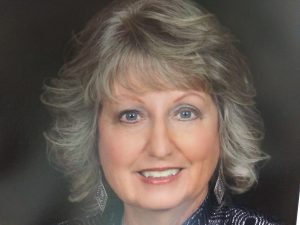 Retired pharmacist Sharon Deason, RPh was selected to serve on The Georgia Pharmacy Foundation Board of Directors. Deason, who has lived in Newnan for more than 40 years, will begin her 3-year term this month, filling the seat of outgoing board member Liza Chapman.
Retired pharmacist Sharon Deason, RPh was selected to serve on The Georgia Pharmacy Foundation Board of Directors. Deason, who has lived in Newnan for more than 40 years, will begin her 3-year term this month, filling the seat of outgoing board member Liza Chapman.
“Whether helping elderly patients understand their medications or teaching the newly diagnosed diabetic how to inject insulin and manage his lifestyle, the practice of pharmacy has been my passion,” Deason said. “I pledge to do my best to continue the great work of the foundation.”
The nonprofit Georgia Pharmacy Foundation funds student pharmacist scholarships, offers free continuing education (CE) and resources to stay mentally well, and gives pharmacists a free path to become a Champion for Opioid Safety.
“We know Sharon will do much to enhance the foundation’s ongoing growth and commitment to make a difference for Georgia pharmacists and our patients,” said foundation Chairman Jim Bartling.
Deason served as a pharmacist in various settings for 45 years and retired in August of 2019, ending her career in the Newnan community where she most recently served patients at Newnan Plaza Pharmacy. She graduated with Magna Cum Laude honors from the University of Georgia with a Bachelor of Science in Pharmacy.
Deason fills the seat of Liza Chapman, whose 2nd term ends June 2020.
“I have enjoyed working with the fellow board members moving the mission of the Foundation forward in our great state,” Chapman said.
“On behalf of the GPhF Board, I want to express our sincere appreciation for all Liza has done as a member,” Bartling said.
Joe Ed Holt My Story

My Story
Joe Ed Holt, RPh
Greetings all fellow members of GPhA,
My name is Joe Ed Holt, RPh and I am the chair of PharmWell, a subcommittee of the Georgia Pharmacy Foundation. Many of you have heard my story of recovery from addiction. When I was laying there in a psychiatric facility not knowing what my next move was (if there was a next move), I was given a number to call, which put me in contact with the PharmAssist program, which is now under the PharmWell umbrella. Soon, a network of volunteers began contacting me to accomplish one goal: to save my life. That was 20 years ago, and because of their efforts I am still clean and sober today.
We are currently in the process of retooling the PharmAssist program to meet the current needs of our fellow brethren as they face their battles with chemical dependency and addiction, but we need help. We need a network of volunteers who would be willing to help walk beside our fellow pharmacists and offer support and accountability. We need you.
If you have a heart for helping those with addiction issues, please consider joining us in trying to save the lives of those in our profession who may be in a very dark place. We need people that are willing to invest time in making and receiving phone calls, answering questions, or just to be there to listen*. We also need people with ideas. We are still in the planning stages with a launch date very soon, but would like the thoughts and opinions of others as we try to do the best we can in helping those who need help.
If you are interested , please consider emailing me (joeedholt@gmail.com). I’ll contact you back ASAP and let you know where you can help.
Thank you in advance for being willing to help those who may have given up on themselves.
Sincerely,
![]()
Joe Ed Holt, RPh
Georgia Pharmacy Foundation Vice-chair
PharmWell Workgroup Chair
*Some volunteer roles may require additional training or certifications.
Press Release Liza Chapman
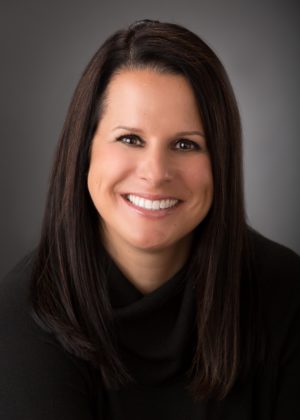 November 2, 2020
November 2, 2020
The Georgia Pharmacy Foundation is happy to announce Dr. Liza Chapman as chairman, effective immediately. Liza is currently Vice President of Partnership Development for the Pharmacy Technician Certification Board, better known in the industry as PTCB. Prior to joining PTCB, Liza was the pharmacy clinical sales coordinator and residency site coordinator with the Kroger Company in Atlanta, Georgia, where she was employed for over 15 years.
Liza is a graduate of Mercer University College of Pharmacy and has been licensed since 2002. She has earned APhA certifications in diabetes, dyslipidemia, immunization delivery, and MTM, and is a certified trainer for APhA’s diabetes immunization, and MTM certificate programs. Her track record as a researcher, guest speaker, and CPE instructor is extensive, and she has been published in the Journal of the American Pharmacists Association and has authored chapters in Introduction to the Pharmacy Profession and Community and Clinical Pharmacy Services: A Step-by-Step Approach. In addition, she has been widely recognized as a pharmacy and community leader and has been awarded a number of honors for her work here in Georgia.
When Georgia first considered authorizing pharmacists to administer influenza vaccines under a protocol agreement with physicians, Dr. Chapman took the leading role as GPhA’s spokesperson and volunteer advocate for passage of that law. Her work helped pave the way for expanding the range of immunizations pharmacists can administer in Georgia without a prescription in 2015.
For all of the above and more, Liza was recognized and became an APhA Fellow in 2017. Liza has served in various capacities with GPhA including GPhA President. By now, you should be aware that Liza is an extraordinary leader, person, and role model for the pharmacy profession. Welcome back, Liza!
“We are deeply saddened by the passing of our dear colleague and friend, Dr. Jim Bartling, who served the Georgia Pharmacy Foundation for many years. I can never fill Jim’s shoes, but I am honored to have the opportunity to serve again on the Foundation board and continue the legacy that Jim has created.”
-Liza Chapman, PharmD, FAPhA
###
The Georgia Pharmacy Association represents Georgia’s pharmacists, pharmacy technicians, and their patients. We fight for pharmacists at the capitol. We provide education, networking, and resources to improve pharmacy practice — and patients’ lives — every day. For more information and the latest pharmacy news, visit GPhA.org.
The Georgia Pharmacy Foundation is the nonprofit arm of the Georgia Pharmacy Association, which represents the state’s pharmacists, pharmacy technicians, and their patients. The foundation’s mission is to advance the quality of healthcare for patients in Georgia communities through the profession of pharmacy.
Media Contact:
Michelle Turkington
Georgia Pharmacy Association
Director of Marketing and Communications
6065 Barfield Road NE, Suite 100
Sandy Springs, Georgia 30328
mturkington@gpha.org
678-640-4313
2022 Legislative Update Days 21-24
March 7, 2022
We are more than halfway through the legislative session so the Capitol will be a little more hectic in the coming weeks. Next Tuesday, March 15 is crossover day, which is the deadline for a bill to pass out of either legislative chamber for the current session. There are numerous bills waiting for a vote including Representative Knight’s Medicaid managed-care prescription drug carve-out bill (HB1351).
HB 1351
Pharmacy Benefits Management for Medicaid Program
HB 1351 was scheduled for a House vote on Friday, March 4. Due to the number of bills on the floor that day, it was pushed to the next legislative day which is Tuesday, March 8. Thank you again for your participation in our last call to action. Many legislators relayed they received your calls and messages and will vote in support!
HB 1519
Prohibit Insurers from Changing Network Participation Contracts
Representative Knight sponsored this bill which will prohibit insurers from unilaterally changing network participation contracts impacting coverage, access to, or costs of ancillary services, which includes pharmacy services. This bill was introduced this week and has been assigned to the House Special Committee on Access to Quality Healthcare. GPhA will work with Representative Knight and other stakeholders to support this legislation.
HB 1279
Controlled Substance Compartmentalized Containers
Representative Matthew Gambill’s bill will allow anyone with a chronic disease or anyone over age 65, who has been prescribed one or medications, to carry their prescriptions in a compartmentalized container with the capacity to hold up to a 21 day supply. This bill was heard in the House Health and Human Services Committee where GPhA offered comments regarding the language in the bill. It passed via substitute with unanimous votes and is headed to the House.
HB 1453
Crimes and Offenses; Access to Medical Cannabis
Representative Sharon Cooper and Representative Micah Gravely are the main sponsors of this bill which looks to revise provisions regarding access to medical cannabis and to provide for accreditation of independent laboratories for testing low THC oil and products. Also, this bill would provide for additional Class 1 and Class 2 production licenses and transfer the operation and maintenance of the Low THC Oil Patient Registry from the Department of Community Health to the Georgia Composite Medical Board. This bill passed through committee via substitute and is on its way to the House.
Bills we are continuing to monitor…
HB 867
Truth in Prescription Pricing for Patients Act
Truth in Prescription Pricing for Patients Act was heard in the Special Committee on Access to Quality Healthcare. GPhA was present and testified in support along with APCI, Medical Association of Georgia, ATAP (Alliance for Transparent & Affordable Prescriptions), and Georgians for a Healthy Future. The bill passed the House and is expected to be taken up in the Senate after crossover.
SB 341
Guidelines for the Prior Authorization of a Prescribed Medication for Chronic Conditions
Senators Kirkpatrick, Burke, Watson, and Hufstetler’s bill provides guidelines for the prior authorization for chronic conditions requiring ongoing medication therapy under certain circumstances to prevent, diagnose, treat or relieve symptoms of a chronic condition for at least a year. Passed in the Senate and headed to the House.
HB 902
Reduce Out-of-Pocket Costs for Insulin
This bill would limit the total cost of insulin not to exceed $100 for a 30-day supply regardless of the amount or type of insulin needed to fill a covered person’s prescription. This bill hasn’t had much movement since January but GPhA will continue to monitor this bill.
HR 823
House Study Committee on Pharmacy Deserts
Creation of a House study committee on identifying pharmacy deserts within the state and to find solutions to eliminate them. This study will examine programs in Georgia and other states and look for sources of revenue for pharmacy desert programs.
HB 963
Controlled Substances; Schedule I and IV; Change Certain Provisions
The annual drug bill passed through the House and is now in the Senate.
SB 518
Prescription Drug Rebate Financial Protection Act
This bill was introduced by Senator Hufstetler which requires all health insurers to pass along no less that 80 percent of all prescription drug rebates to enrollees that such insurer receives from 3rd parties relating to prescription drugs. GPhA will monitor this legislation.
HB 1276
Statistical Data Relating to State Health Plans
Representative Hawkins’ bill that requires statistical reports relating to state health plans and prescription drug spending be posted on the department website. Passed through the House and is waiting for committee assignment on the Senate side.
HB 1400
Georgia Access to Medical Cannabis Commission
This bill increases the Class I production licenses from 2 to 9 in 100,000 square feet of cultivation space and increases the Class II production licenses from 4 to 19 in 50,000 square feet of cultivation space. This bill passed through committee and will head to the House for a vote.
If you have any questions, please reach out to me at mreybold@gpha.org.
Melissa Reybold
COVID-19 Therapeutics Allocations for Feb 28 – Mar 6, 2022
From: HHS – Coordination Operations and Response Element (H-CORE), Office of the Assistant Secretary for Preparedness and Response, U.S. Department of Health and Human Services
Subject: COVID-19 therapeutics allocations for Feb 28 – Mar 6, 2022
Importance: High
Dear Stakeholder,
Allocation amounts for COVID-19 therapeutics to states, territories, and federal entities have been determined for the period of Feb 28 – Mar 6, 2022, and are below. Evusheld, Bebtelovimab and Sotrovimab are included in today’s allocations.
On Feb 24, FDA announced a modification to the Emergency Use Authorization for Evusheld (AstraZeneca). The modification involves a change to the dosing regimen. Evusheld now should be administered as an initial dose of 600 mg. Individuals who already received the previously authorized initial 300 mg dose should receive a second Evusheld dose as soon as possible. Recommendations will be made in the near future when more data are available to determine the appropriate timing of redosing (e.g., a repeat dose with 150 mg of tixagevimab and 150 mg of cilgavimab at 3 months or 6 months after the initial dose).
HHS is committed to the health and wellbeing of all Americans, and that is why we have purchased as much Evusheld as the manufacturer can supply. We are making product available to states and territories without delay. Current utilization data available to us (as reported by state and territorial health departments and administration sites) notes the utilization rate of Evusheld is approximately 20% nationally with orders of Evusheld also being low. We are focused on outreach efforts to help increase utilization across jurisdictions and make Evusheld more available to providers for use among eligible patients as another tool for protection against COVID-19. To support product access, we maintain a public dashboard of jurisdiction-by-jurisdiction allocations of Evusheld as well as an online locator.
Distribution Determinations for Feb 28 – Mar 6, 2022
Units = doses
The allocation dashboard can also be found on ASPR. HHS.gov.
|
Jurisdiction |
Evusheld |
Bebtelovimab |
Sotrovimab |
Total |
|
Alabama |
744 |
845 |
762 |
2351 |
|
Alaska |
120 |
185 |
168 |
473 |
|
American Samoa |
0 |
0 |
0 |
0 |
|
Arizona |
1032 |
1480 |
1326 |
3838 |
|
Arkansas |
456 |
715 |
642 |
1813 |
|
BOP |
0 |
0 |
0 |
0 |
|
California |
5904 |
6090 |
5466 |
17460 |
|
Colorado |
840 |
840 |
750 |
2430 |
|
Connecticut |
552 |
355 |
318 |
1225 |
|
Delaware |
144 |
120 |
120 |
384 |
|
Dept of Defense |
0 |
390 |
408 |
798 |
|
Dept of State |
0 |
0 |
0 |
0 |
|
District of Columbia |
120 |
100 |
120 |
340 |
|
Federated States of Micronesia |
0 |
0 |
0 |
0 |
|
Florida |
3240 |
4050 |
3636 |
10926 |
|
Georgia |
1536 |
1385 |
1242 |
4163 |
|
Guam |
0 |
0 |
0 |
0 |
|
Hawaii |
216 |
195 |
174 |
585 |
|
HRSA |
0 |
0 |
0 |
0 |
|
ICE |
0 |
0 |
0 |
0 |
|
Idaho |
240 |
620 |
558 |
1418 |
|
Illinois |
1944 |
1345 |
1206 |
4495 |
|
Indian Health Svc |
408 |
390 |
408 |
1206 |
|
Indiana |
984 |
840 |
756 |
2580 |
|
Iowa |
480 |
405 |
366 |
1251 |
|
Kansas |
432 |
420 |
378 |
1230 |
|
Kentucky |
672 |
1625 |
1458 |
3755 |
|
Louisiana |
696 |
675 |
606 |
1977 |
|
Maine |
216 |
920 |
828 |
1964 |
|
Marshall Islands |
0 |
0 |
0 |
0 |
|
Maryland |
912 |
455 |
408 |
1775 |
|
Massachusetts |
1080 |
785 |
708 |
2573 |
|
Michigan |
1512 |
1310 |
1176 |
3998 |
|
Minnesota |
840 |
760 |
684 |
2284 |
|
Mississippi |
456 |
380 |
342 |
1178 |
|
Missouri |
912 |
910 |
816 |
2638 |
|
Montana |
168 |
350 |
312 |
830 |
|
Nebraska |
288 |
210 |
186 |
684 |
|
Nevada |
432 |
345 |
306 |
1083 |
|
New Hampshire |
216 |
270 |
240 |
726 |
|
New Jersey |
1368 |
935 |
840 |
3143 |
|
New Mexico |
312 |
355 |
318 |
985 |
|
New York |
3048 |
1880 |
1686 |
6614 |
|
NIH |
24 |
20 |
24 |
68 |
|
North Carolina |
1536 |
2090 |
1878 |
5504 |
|
North Dakota |
120 |
140 |
126 |
386 |
|
Northern Mariana Islands |
0 |
0 |
0 |
0 |
|
Ohio |
1776 |
1265 |
1134 |
4175 |
|
Oklahoma |
576 |
715 |
642 |
1933 |
|
Oregon |
624 |
655 |
588 |
1867 |
|
Palau |
0 |
0 |
0 |
0 |
|
Pennsylvania |
1992 |
1650 |
1482 |
5124 |
|
Puerto Rico |
528 |
155 |
144 |
827 |
|
Rhode Island |
168 |
115 |
120 |
403 |
|
South Carolina |
768 |
965 |
870 |
2603 |
|
South Dakota |
120 |
210 |
186 |
516 |
|
Tennessee |
1008 |
1715 |
1536 |
4259 |
|
Texas |
4032 |
4795 |
4308 |
13135 |
|
U.S. Virgin Islands |
24 |
100 |
120 |
244 |
|
Utah |
408 |
480 |
432 |
1320 |
|
Vermont |
96 |
120 |
120 |
336 |
|
Veterans Health |
0 |
390 |
408 |
798 |
|
Virginia |
1296 |
1325 |
1188 |
3809 |
|
Washington |
1104 |
695 |
624 |
2423 |
|
West Virginia |
288 |
605 |
546 |
1439 |
|
Wisconsin |
888 |
750 |
672 |
2310 |
|
Wyoming |
96 |
100 |
120 |
316 |
|
Grand total |
49,992 |
51,990 |
46,986 |
148,968 |
For questions regarding COVID-19 therapeutics for this cycle, please contact COVID-19Therapeutics@hhs.gov.
Thank you,
HHS – Coordination Operations and Response Element (H-CORE)
Office of the Assistant Secretary for Preparedness and Response
U.S. Department of Health and Human Services
Press Release Tim Short Running for District 28 State Representative
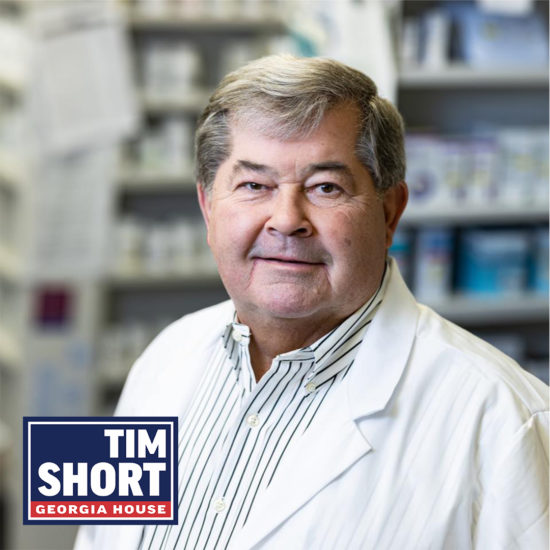 FOR IMMEDIATE RELEASE
FOR IMMEDIATE RELEASE
January 26, 2022
Media Contact:
info@votetimshort.com
(404) 291-2652
CUMMING, GA – Long-time local pharmacist and business owner, Tim Short, RPh, has announced his campaign for Georgia State House in the newly-drawn GA-28 district for portions of Hall and Forsyth Counties.
“I am running to represent and preserve the conservative values of our district,” announced Short. “With the decline in leadership and the lack of integrity in our political system over the last few years, I am motivated to provide an honest, straightforward, and trustworthy voice in our state Capitol.”
Short has been a resident of Forsyth County since 1981. He raised his family, built a business, and served in leadership roles within his profession. As the owner of an independent pharmacy, he has also served a role in government affairs and most recently helped inform legislation that lowered costs and improved pharmacy benefits for every Georgian.
Spending his career listening to people, Tim focuses on the big picture and makes decisions that benefit his customers, his profession, and the community at large. “I want to put my knowledge and experience to work as a resource in our legislature. As a father, grandfather, business owner, and leader, I have a vested interest in addressing the day-to-day concerns of every citizen in this district.” Short points to the priorities that he believes every resident of Forsyth and Hall counties share in common as issues he wants to address under the gold dome – including transparency, education, controlled growth, community safety and security, and economic opportunity.
Short is a lifelong Georgian, a graduate of the University of Georgia, and opened Sawnee Drug Company in 1988. Throughout his career, Short has served as a member, leader, and Chairman within the boards of various organizations including the Georgia Pharmacy Association, Academy of Independent Pharmacy, PharmPAC, National Community Pharmacy Association, and the American Pharmacy Association. He has served on committees dedicated to member benefits and governmental affairs and has been recognized as AIP Pharmacist of the year.
Tim and his wife Rita have two sons and one grandson. They continue to reside in Forsyth County and attend Browns Bridge Church where Tim has taken on additional leadership and service roles.
###
Moderna’s Covid-19 Vaccine Receives Full FDA Approval
(CNN)
Updated 12:04 PM ET, Mon January 31, 2022
Moderna’s Covid-19 vaccine has received full approval from the US Food and Drug Administration, according to news releases from the FDA and Moderna.
CDC Tells Pharmacies to Give 4th Covid Shots to Immunocompromised Patients
The Centers for Disease Control and Prevention reached out to pharmacists Wednesday to reinforce the message that people with moderate to severe immune suppression are eligible for fourth covid shots.
The conference call came a day after KHN reported that immunocompromised people were being turned away by pharmacy employees unfamiliar with the latest CDC guidelines.
White House chief of staff Ron Klain tweeted Wednesday morning that “immune-compromised people should get the shots they need,” adding that the CDC “is going to send stronger messages to pharmacies to make sure this happens.”
Pharmacists who joined the call said it took place midday Wednesday, a few hours after Klain’s tweet.
The CDC “reiterated the recommendations, running through case examples,” said Mitchel Rothholz, chief of governance and state affiliates for the American Pharmacists Association, who joined the CDC call.
Rothholz said he “asked for a prepared document … that clearly laid out the recommendations … so we can clearly and consistently communicate the message. They said they would but don’t know how long that will take.”
The CDC recommends one additional shot for the 7 million American adults whose weak immune systems make them more vulnerable to covid infection and death. This group includes people with medical conditions that impair their immune response to infection, as well as people who take immune-suppressing drugs because of organ transplants, cancer, or autoimmune diseases. Although people with obesity or diabetes are at high risk of developing severe disease or dying from covid, they’re not considered immunocompromised.
For other people ages 5 or older, the CDC recommends a primary vaccine series of two doses of mRNA vaccine. Adults also may receive the one-dose Johnson & Johnson vaccine, which the CDC says may be safer for people who have had a severe allergic reaction to an mRNA vaccine.
Anyone older than 12 can get one booster dose to combat waning immunity five months after the last shot in their primary series, regardless of which vaccine they received. Vaccines are not yet authorized for children younger than 5.
The CDC first recommended fourth shots for immunocompromised people in October. The agency has been working to educate pharmacists and other health providers since then, said CDC spokesperson Kristen Nordlund. Those efforts included a conference call with health officials from every state that had thousands of participants, as well as an additional call to physicians. The CDC has streamlined its website with booster advice several times. In its guidance to pharmacists, the CDC notes that patients don’t need to provide proof that they are immunocompromised.
Alyson Smith, who was turned away from a Walgreens drugstore after booking a vaccine appointment online, said she was pleased that the CDC is trying to help.
“I appreciate that the CDC is listening to patient and physician concerns and hope they will examine their processes for clear messaging and comprehensive dissemination of information,” Smith said.
In a statement before the publication of KHN’s first story, Walgreens said it continuously updates its pharmacists on new vaccine guidance.
Some health care leaders said the CDC should have done a better job of publicizing its advice on booster shots for the immunocompromised.
The call with pharmacists “should have been done many weeks ago,” said Dr. Eric Topol, founder and director of the Scripps Research Translational Institute. “I’m glad that the White House team is finally pushing forward on this.”
Dr. Ameet Kini, a professor of pathology and laboratory medicine at Loyola University Chicago Stritch School of Medicine, said he hopes the large pharmacies that have been turning people away will issue news releases and update their websites “explicitly stating that they are offering fourth doses” to immunocompromised people. He said pharmacies also need to update their patient portals and provide “clear guidance for their pharmacists.”




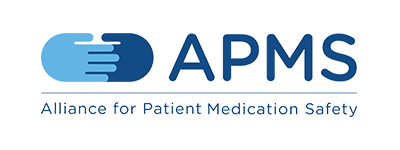






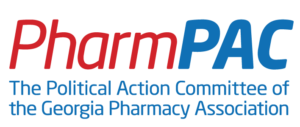

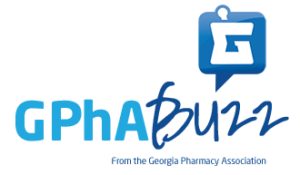
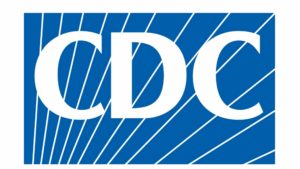 Kaiser Health News
Kaiser Health News